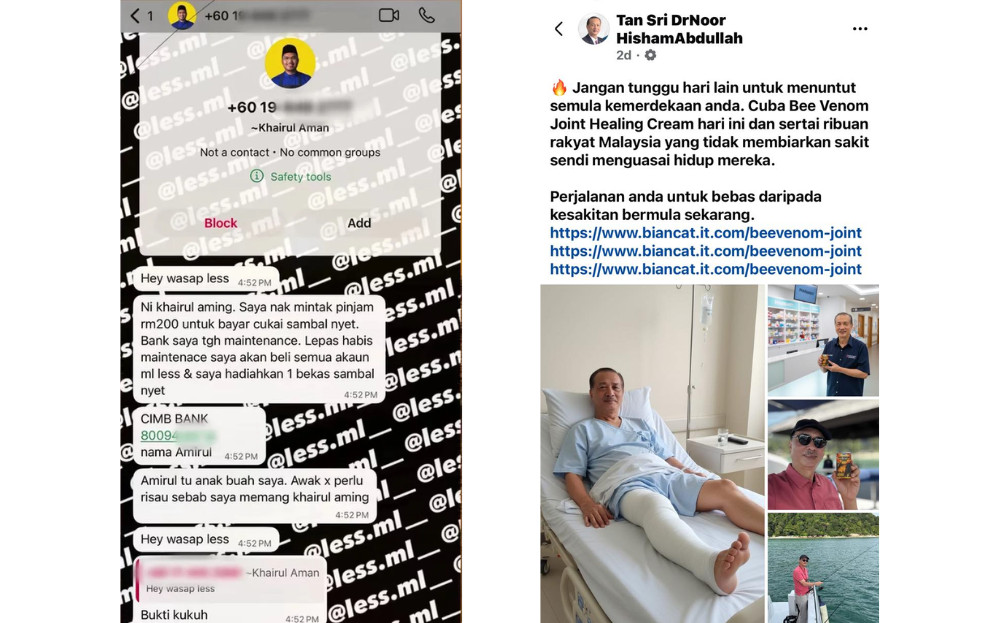As we edge closer to 2026, online scams are showing no signs of slowing down. From deepfakes to AI-generated voices, scammers are finding new and creative ways to trick people. And this time, even Malaysia’s most recognisable personalities aren’t spared.
Two familiar names have recently become targets of these digital deceptions: Khairul Aming, the beloved entrepreneur behind Sambal Nyet and a recent Malaysia Book of Records titleholder, and Tan Sri Dato’ Seri Dr. Haji Noor Hisham bin Abdullah, Malaysia’s former Health Director-General. Both fell victim to scams involving impersonation and artificial intelligence, highlighting just how convincing online scams have become.

Recently, a post on Threads went viral after showing a “Khairul Aman” pretending to be Khairul Aming, asking for RM200 to pay a “Sambal Nyet business tax.” Instead of his signature “Hey, what’s up guys?” the scammer awkwardly opened with “Hey, wasap less.” To make things even more suspicious, the bank account given wasn’t under Khairul Aming’s name but “Amirul.” The fake chat quickly spread online, with many netizens joking about the obvious giveaway, while others reminded users to be wary of such impersonation attempts.
In another case, Dr Noor Hisham’s image was misused in an AI-generated advert promoting a fake “healing cream.” Sharing the incident himself, he warned followers not to be deceived. “It looks like me, sounds like me, moves like me, but it’s not me!” he wrote, confirming that legal action was being taken against the creators of the fake content.

While these cases sparked laughter online, they also serve as an important reminder: scammers are becoming smarter, and AI is making it harder to tell what’s real. So before clicking, paying or sharing, pause and think twice.
How to Avoid Getting Scammed
- To stay safe online, here are a few simple but important tips:
- Avoid clicking on suspicious links, especially shortened URLs like bit.ly.
- Never share personal or banking details with unknown contacts.
- Do not reveal TAC or OTP codes to anyone, not even someone claiming to be from a trusted company.
- Install caller ID apps such as Truecaller to detect potential scam numbers.
A quick check or a moment’s hesitation can make all the difference. After all, it’s better to be sceptical than to be scammed.
Sources: The Rakyat Post, Sinar Harian







